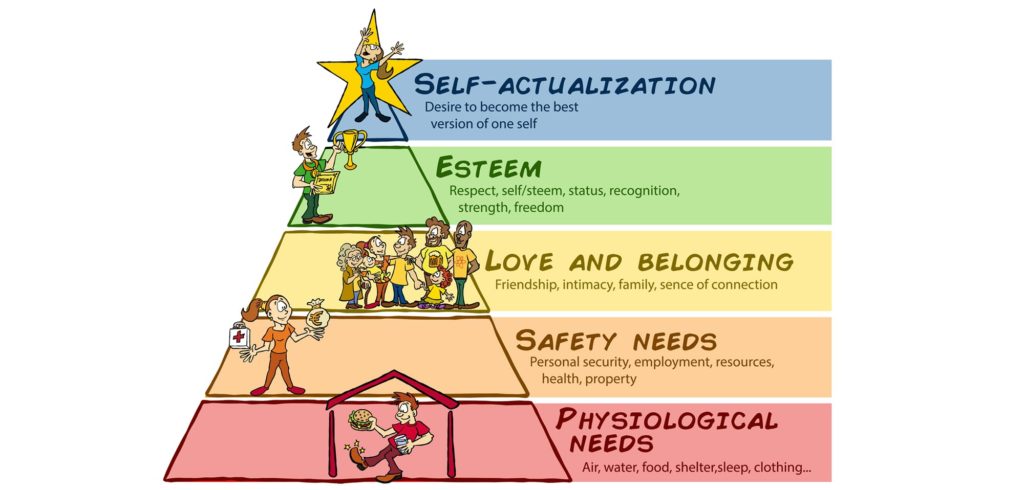
Caregivers are told time and time again to take care of themselves, to meet their own needs, and not to push themselves too hard. Yet, self-care remains one of the hardest things for caregivers to do. There are many reasons for this, including difficulties in creating boundaries, caregiver guilt, and simply not having enough time.
However, there’s a more fundamental problem that self-care discussions don’t cover.
To meet your needs well, you need to know what these are first.
You might think that you already do. Most caregivers can easily come up with a list of needs, with more time, rest, and more support often coming out on top.
Yet, many times those apparent needs aren’t what we’re really struggling with.
If we can identify what our true needs are and meet these, then the other aspects of caregiving suddenly become much easier.
The idea isn’t as strange as it might seem. We already know that caregivers can vary dramatically from one another in their levels of stress, physical and mental discomfort, and happiness, even when their situations are almost identical.
Indeed, we suffer our expectations and assumptions far more than our actual experiences. It’s even possible to completely change your experience of a situation by starting to focus on joy and self-compassion.
The Core Human Needs
So then, let’s talk about the needs that define us as humans. Experts have delved into these over the years. A classic version is Maslow’s Hierarchy of Needs, which you can see in the image below. This starts with the basic needs like food and sleep, then progresses up until you get to esteem and self-actualization.

Maslow’s approach is interesting enough, but Tony Robbins offers a variation that’s easier to work with and may be more powerful. He focuses on six core needs, four of which are paired opposites.
Everyone has their own default ways to address these six needs. Some approaches are healthy and work well, while others are counterproductive.
Here’s the thing though…
You will have developed your own ways to meet these needs through the course of your life. Being a caregiver shifts what works and what doesn’t, which can leave some gaps.
For example, some people find certainty in having a strict routine, but strict routines are often difficult or impossible if you’re a caregiver. Rather than trying to make your previous technique(s) work in your new situations, the trick is to find different ways to meet your basic needs – ones that are realistic as a caregiver.
So, let’s take a look at the needs and how to address them.
Certainty

Certainty doesn’t need much explaining. It’s a sense of knowing what’s going to happen. Knowing that you’re safe, secure, and protected.
We all need this to some degree. When there’s little certainty in our lives, we can feel like we’re in fight or flight mode. In this situation, it’s often hard to make good decisions and we quickly feel overwhelmed.
Caregivers face a lack of certainty all the time.
After all, when someone is sick or aging, there are many unknowns, including how their health will change over time. If you’re caring for someone with cognitive challenges or a mental illness, every day may bring its own unexpected challenges.
How to Increase Certainty
Many caregivers turn to religion as a guiding principle, a source of strength and certainty. This may be why caregivers with a practiced faith often cope better, as they have a source of security and comfort that’s beyond themselves.
Having some type of routine can help too, like getting up at the same time each day and serving meals at regular times.
Some flexibility will be needed, of course, as you have two people to think about, not just yourself. Still, even having one or two things in place can help tremendously. For that matter, routine often helps seniors as well, for the same reason that it helps you.
You can try other ways to be organized too. Organization can make a huge difference and isn’t as difficult as you might expect.
One that works for me is planning for flexibility.
My life, even these days, is such that most things are unpredictable. I don’t know what will happen when and often get little notice about changes.
Living like this did my head in at first and I missed my schedules and routines. But, I’ve learned to look for the pleasure in the unexpected and to basically plan for not knowing. For example, I often keep a packed lunch in the fridge and a bag filled with important things, so that if I need to leave quickly, I’m ready.
Variety
Certainty and variety are a paired set of needs. They’re both important. Too much certainty can make us feel stifled and restless, while too much variety makes us feel ungrounded and perhaps afraid.
Variety is what makes life feel exciting. It’s often what makes us want to get up in the morning and makes us enthusiastic for the day ahead.
Caregiving can be strange in that you’re often lacking certainty and variety at the same time. Your days are often filled with the same kinds of tasks over and over again, but you never quite know how their going to present or when the next crisis will be.
A lack of variety can be a serious issue for full-time caregivers. Many find that their lives have become dull and repetitive, which just makes everything more stressful.
But, variety isn’t just found in the big things. You can shift your focus and look for variety in little ways too. We’ll come back to specific strategies later in this post.
How to Increase Variety
Before you were a caregiver, you probably found variety outside of the home, perhaps by going out, by traveling, or meeting up with friends. You may have even been into nature sports or something equally exciting.
If you’re a full-time caregiver, your options for variety seem limited. This is particularly true if your family member can’t be on their own safely.
Thankfully, there are things you can do.
Having a hobby often helps, as you get to put your attention on something else for a while. Find a hobby that you enjoy and you can easily get lost in it. Gardening is an easy choice for some people.
You could also try crafts or perhaps a craft subscription box. The subscription box approach works well, as you’re getting a different project each month and don’t need to shop for supplies yourself,
You can add variety to things that you do with your family member too. Why not look for some interesting indoor activities or music activities?
Significance

Significance refers to the need to feel that your life is important, that it’s special. The need for significance often makes people branch out and assert themselves as individuals.
Some caregivers get this from the caregiving role, as you are making someone else’s life easier. There’s a lot of value in this, especially if your culture has a strong focus on supporting family.
However, this isn’t always the case. You might struggle with significance instead, feeling that you’re invisible, simply doing the same thing day after day, for someone whose health is only going to get worse.
How to Increase Significance
One way to help with significance is by reframing your situation. Society already places high value on supporting others, which makes it easy to see this part of your role as valuable.
Doing so can even work if the person you care for doesn’t acknowledge you. If this is the case, you could look for other people to affirm the work you do. Caregiving forums are a great place for this, as you’re talking to people who know exactly what your situation feels like.
You could look for other sources of significance too, like volunteering at a local church.
If you don’t have much spare time or energy, providing support online is an easy option. There are plenty of forums and Facebook Groups filled with caregivers who are struggling. Spending even a little time affirming others and offering advice can be incredibly valuable and offers you a sense of significance at the same time.
Love and Connection
In one sense, love and connection is the opposite of significance. With significance, you’re wanting to be seen as an individual, for your uniqueness and meaning to be appreciated. With love and connection, you’re often looking to fit in instead.
Caregiving often provides some inherent connection, as you’re supporting someone who you care for. This isn’t always true though. If the care recipient is difficult, has a cognitive challenge, or is outright abusive, your sense of connection might be almost no-existent.
You may also simply need more connection than you get from that single person.
Many caregivers find themselves lonely much of the time. This is particularly true if you’re a full-time caregiver and it’s just you and the person that you’re supporting.
People caring for their spouses also struggle in this area, as the love and connection that they get is often less than what they hoped for or expected.
How to Increase Love and Connection
There are two main ways to increase your sense of love and connection. One is by finding other people to connect with. The other is by connecting more with the people already in your life.
These don’t need to be romantic connections either. Friendships can be just as important.
Finding good connections does always take time. Shared interests are a good place to begin, which is why hobby-based groups often work well. You can look online too, perhaps finding connections through social media, online support groups, and forums.
You can also talk to your family member about your needs. Perhaps there are things they can do that increase your sense of connection. For example, it might help if they affirmed you more or perhaps if they hugged you.
The best approaches may depend on how you give and receive love. Looking into love languages can help you work out the specific things that make you feel loved.
Finally, you can also reframe things. For example, there’s a book called Creating Moments of Joy that talks about finding small valuable moments of joy when you’re caring for an Alzheimer’s patient. Those same principles can be applied elsewhere too.
Honestly, every relationship has its small and beautiful moments. Learning to appreciate these rather than looking for what could be is powerful tool.
Growth

Growth simply means moving forward. This could be spiritually, intellectually, or emotionally.
Tony Robbins calls growth a ‘need of the spirit’. It’s one that you often only address once the previous four are in place. However, it’s no less important.
How to Grow
When you’re looking at a way to grow, think about what interests you. Where do you want to develop yourself? Where do your passions lie?
As a caregiver, starting with your emotions might work well. Topics like self-compassion, emotional mastery, mindfulness, and presence can all help you to grow and thrive, regardless of how challenging the caregiving role becomes.
Contribution
Contribution is the final need on our list and it’s another one that relate to your spirit. At its heart, contribution is the need to give beyond yourself, to support others.
This is also the one need that most caregivers don’t need to address. After all, the nature of caregiving means that you’re regularly giving – sometimes above and beyond what you think you can.
Final Thoughts
The first four needs on this list, certainty, variety, significance, and love/connection, are ones that we try to meet in some way or another – often unconsciously. We all learn our own way with these, including what works well for us and what doesn’t.
Problems arise when our techniques are bad for us or for others (like using drugs for variety or one night stands as a form of connection), and when they no longer fit the situation we’re in.
Being aware and intentional about solving these needs is a much more powerful approach. By doing so, you can find approaches that work well in your current situation. You might be surprised at how much impact these needs can have on your life. Finding ways to meet them well truly can make you feel stronger, more grounded, and more resilient. Some things that were difficult before may become easy or even enjoyable.
Feeling Overwhelmed?
Check out our Caregiving Consulting service for personalized support and guidance.

Leave a Reply